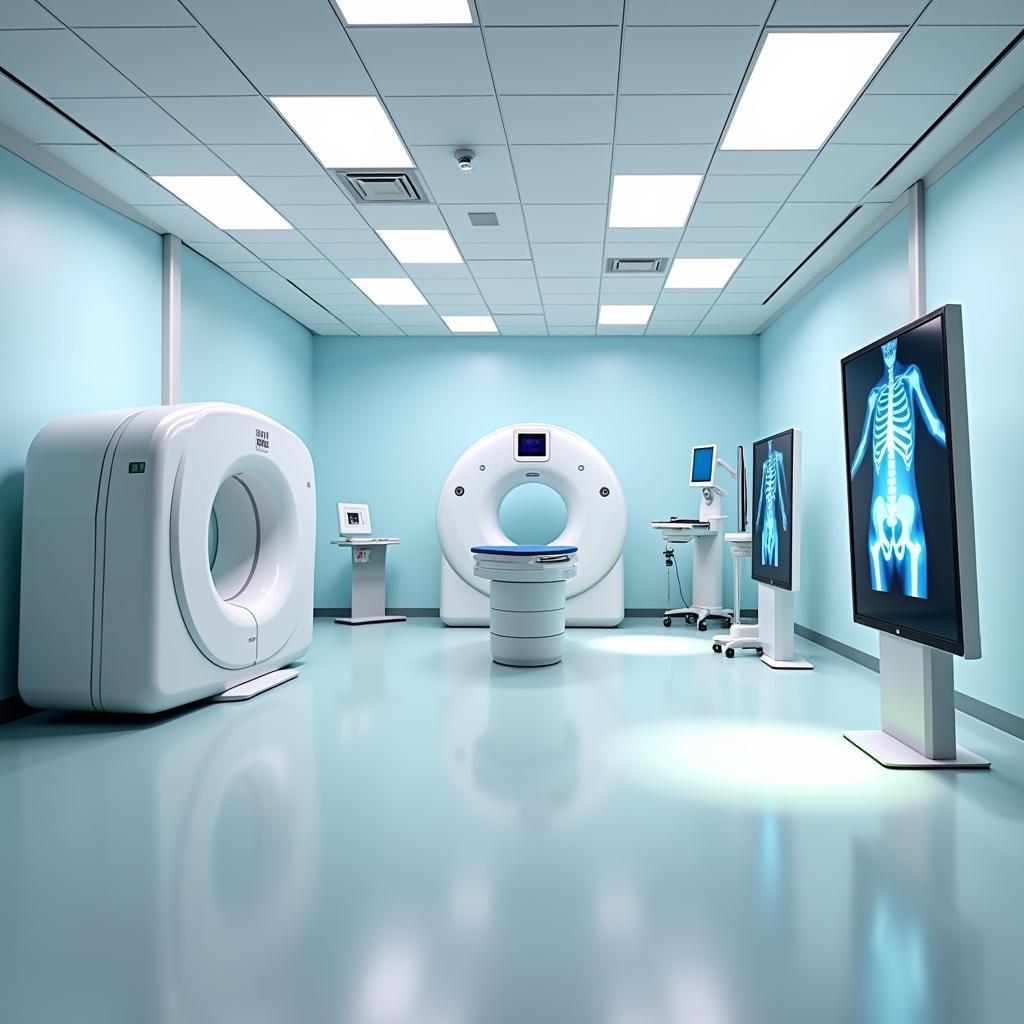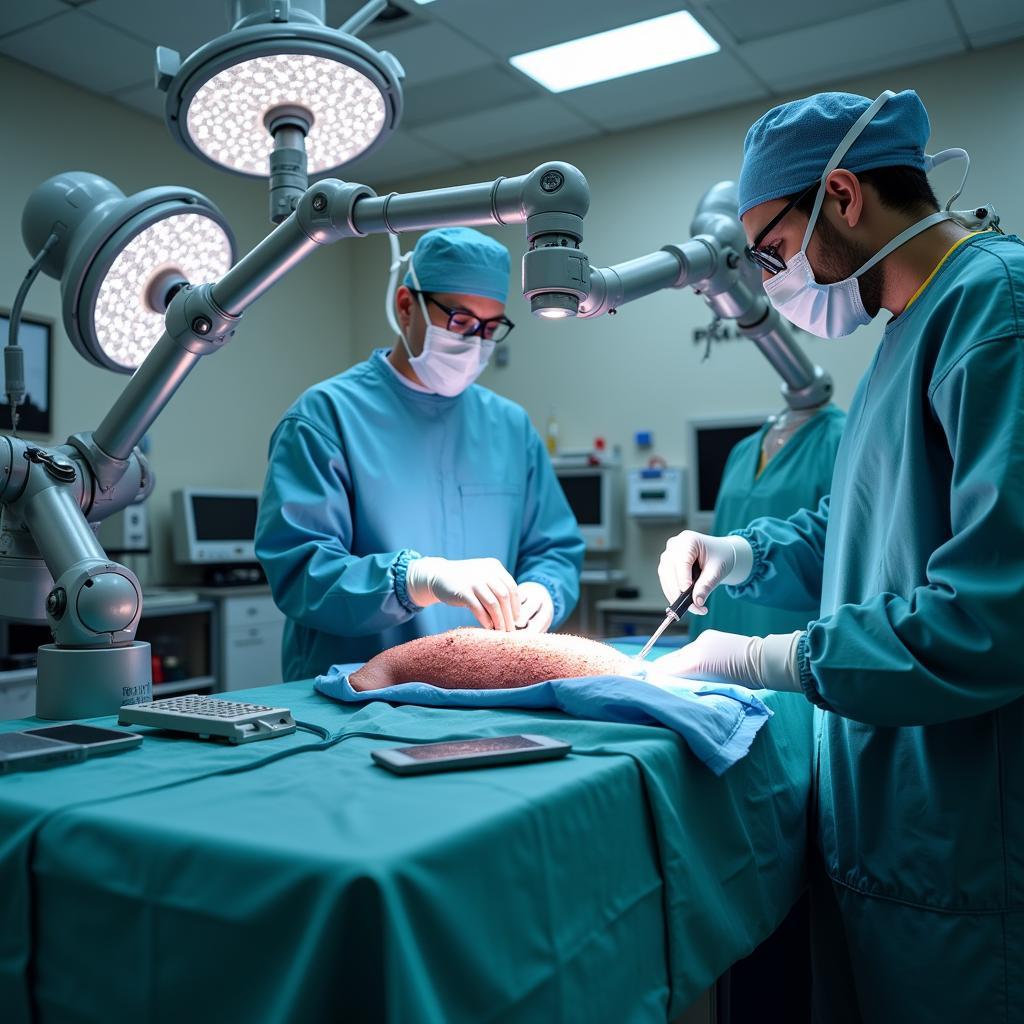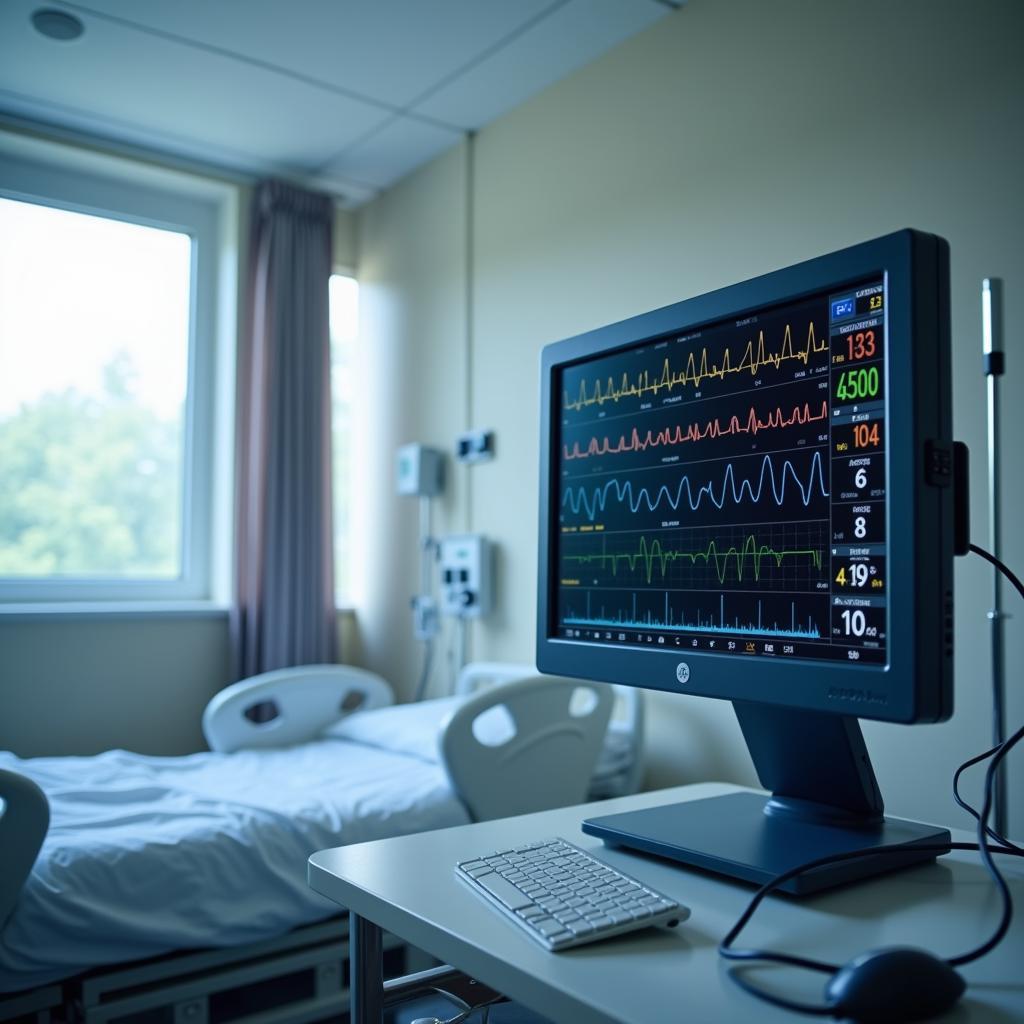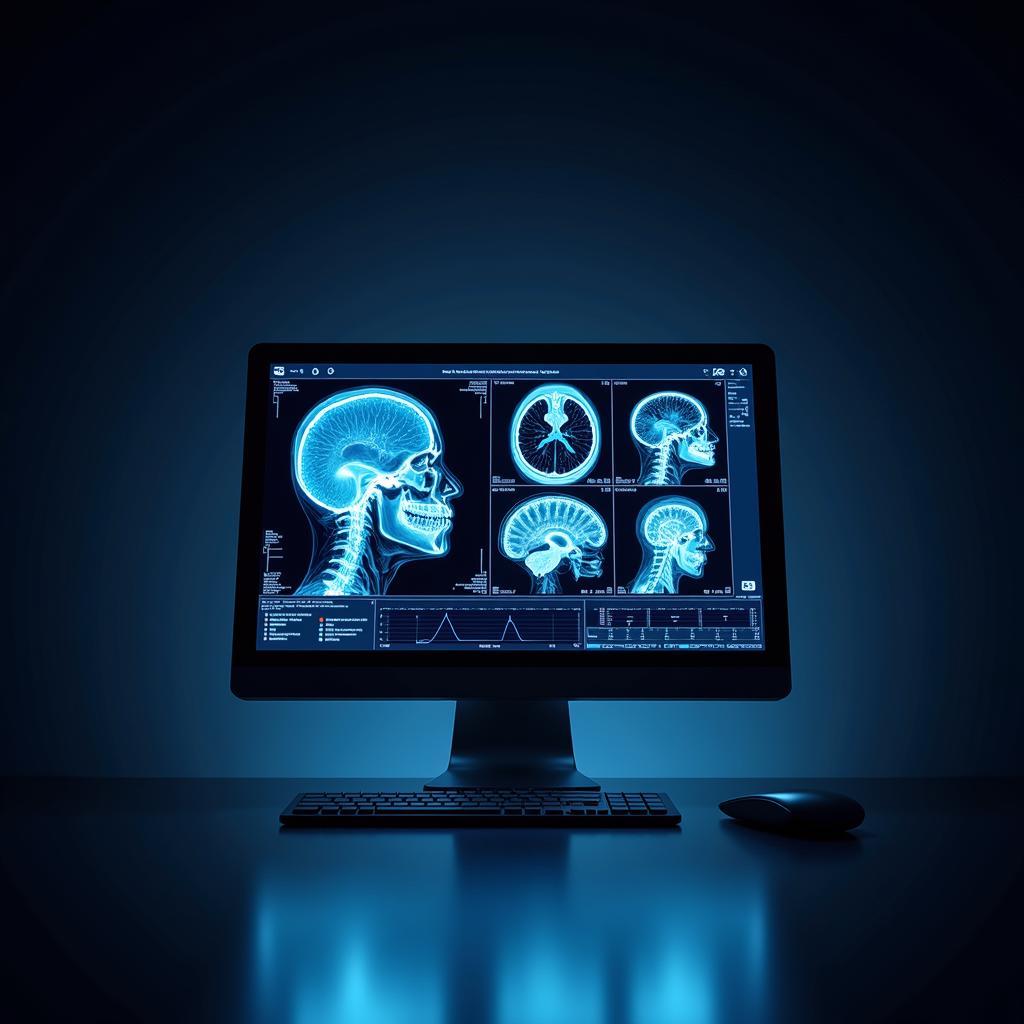Machines In The Hospital are no longer a futuristic concept, but a vital part of modern healthcare. From diagnosis to treatment and ongoing care, these sophisticated tools empower medical professionals to provide accurate, efficient, and life-saving services. At San Jose Hospital, we leverage cutting-edge technology to ensure our patients receive the highest standard of care in a comfortable and technologically advanced environment.
The Role of Machines in Diagnosis
Medical machines play a crucial role in accurately diagnosing a wide range of conditions. Imaging technologies like X-rays, CT scans, and MRI machines allow doctors to visualize the internal structures of the body, identifying fractures, tumors, and other abnormalities. Ultrasound machines use sound waves to create images, particularly useful during pregnancy and for examining organs like the heart and liver. These diagnostic tools are indispensable for making informed decisions about treatment plans.
What other machines aid in diagnosis? Electrocardiogram (ECG) machines monitor heart activity, detecting irregularities and potential heart conditions. Endoscopes allow doctors to visualize the inside of the body’s cavities, aiding in the diagnosis of digestive issues and other internal problems. These technologies provide critical information, often leading to early detection and more effective interventions.
 Modern Diagnostic Imaging Equipment in Hospital Setting
Modern Diagnostic Imaging Equipment in Hospital Setting
Machines in Treatment and Surgery
Surgical procedures have been revolutionized by the introduction of advanced machines. Robotic surgery systems, for instance, enable surgeons to perform complex procedures with enhanced precision and minimally invasive techniques. This leads to smaller incisions, reduced recovery times, and less post-operative pain for patients. Laser technology is also widely used in various surgical specialties, offering precise and targeted treatment for a variety of conditions.
Beyond surgery, machines play a vital role in other treatment areas. Dialysis machines filter waste products from the blood for patients with kidney failure, while respirators assist patients with breathing difficulties. Infusion pumps deliver medications with controlled precision, ensuring optimal dosage and minimizing potential side effects.
 Robotic Surgery System in Modern Operating Room
Robotic Surgery System in Modern Operating Room
Enhancing Patient Care with Technology
Machines in the hospital extend beyond diagnosis and treatment, significantly enhancing overall patient care. Patient monitoring systems track vital signs, alerting medical staff to any changes requiring immediate attention. These systems contribute to a safer and more responsive healthcare environment. Automated medication dispensing systems ensure accurate and timely medication delivery, minimizing errors and improving patient safety.
How do these machines benefit patients directly? They streamline administrative tasks, allowing healthcare professionals to spend more time directly interacting with patients. This personalized approach fosters stronger patient-doctor relationships and contributes to a more positive patient experience.
“The integration of technology in patient care is not about replacing human interaction, but about enhancing it,” says Dr. Emily Carter, Chief of Medical Technology at San Jose Hospital. “These machines provide us with the tools to deliver more efficient, personalized, and ultimately more effective care.”
 Patient Monitoring System at Hospital Bedside
Patient Monitoring System at Hospital Bedside
The Future of Machines in Hospitals
The future of healthcare is intertwined with technological advancements. Artificial intelligence (AI) and machine learning are poised to further revolutionize medical practices. AI-powered diagnostic tools can analyze medical images with increased accuracy and speed, assisting doctors in identifying subtle patterns and making more informed diagnoses. Machine learning algorithms can analyze patient data to predict potential health risks and personalize treatment plans.
“The advancements in AI and machine learning are truly transformative,” adds Dr. Michael Rodriguez, Head of Cardiology at San Jose Hospital. “These technologies hold the potential to revolutionize how we diagnose, treat, and manage diseases, leading to better patient outcomes.”
 AI-Powered Diagnostic Tool Interface on Computer Screen
AI-Powered Diagnostic Tool Interface on Computer Screen
Conclusion
Machines in the hospital are essential for providing high-quality healthcare. From diagnostic imaging to surgical procedures and ongoing patient monitoring, these technologies play a crucial role in improving patient outcomes and enhancing the overall healthcare experience. At San Jose Hospital, we embrace these advancements to deliver exceptional care in a modern and technologically advanced setting.
FAQ
- What are the most common types of machines used in hospitals?
- How are machines improving patient safety in hospitals?
- What are the benefits of robotic surgery?
- How does AI impact the use of machines in hospitals?
- What are the future trends in medical technology?
- How does San Jose Hospital utilize technology to enhance patient care?
- What training do healthcare professionals require to operate these machines?
When you need support, please contact us at Phone Number: 02437655121, Email: [email protected] Or visit us at: No. 298 Cau Dien Street, Minh Khai, Bac Tu Liem, Hanoi, Vietnam. We have a 24/7 customer care team.